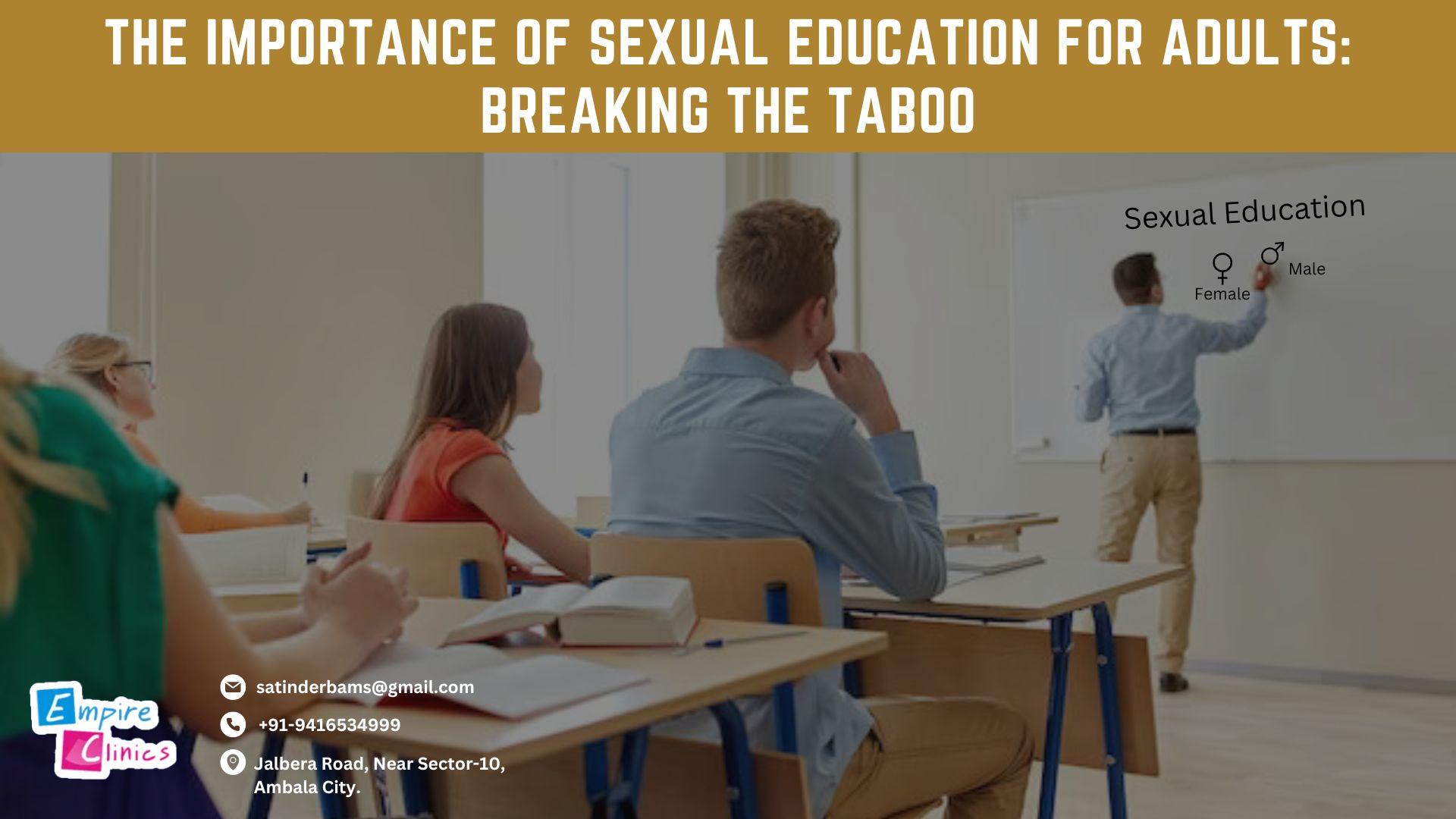Sexuality is an essential part of human life, yet it often remains a topic shrouded in silence, discomfort, and taboo. Despite societal advancements, sexual education for adults is often neglected. However, recognizing the vital role of sexual education specialists can be pivotal in breaking down these barriers and promoting healthy attitudes towards sexuality. In this article, we will explore the significance of sexual education for adults and the valuable role that sexologists play in providing this education.
Understanding the Need for Sexual Education
Sexual education for adults goes beyond basic biology. It encompasses a wide range of topics, including sexual health, consent, communication, intimacy, sexual dysfunctions, and diverse sexual orientations. By providing accurate information and promoting open conversations, sexual education can address various issues that adults face, including:
- Promoting Sexual Health: Comprehensive sexual education equips adults with knowledge about safe sexual practices, contraception methods, sexually transmitted infections (STIs), and the importance of regular health check-ups. This knowledge empowers individuals to make informed decisions about their sexual well-being.
- Enhancing Intimate Relationships: Effective communication and understanding of one's own desires and those of their partner are crucial for building healthy intimate relationships. Sexual education helps individuals develop these skills, fostering stronger emotional connections and mutual satisfaction.
- Addressing Sexual Dysfunctions: Many adults experience sexual dysfunctions that can negatively impact their quality of life and relationships. Sexologists can offer specialized guidance and therapies to address these issues, helping individuals regain confidence and overcome challenges.
- Supporting Sexual Diversity: Sexual education promotes inclusivity by acknowledging and respecting diverse sexual orientations and identities. It helps combat prejudice and discrimination, fostering a more accepting and understanding society.
Role of a Sexologist
A sexologist is a trained professional who specializes in sexual health and well-being. They provide a safe and non-judgmental space for individuals to discuss their concerns, seek guidance, and receive appropriate treatment. Here are some key roles a sexologist plays:
- Education and Counseling: Sexologists offer comprehensive sexual education, addressing various aspects of human sexuality. They provide accurate information, dispel myths, and answer questions, enabling individuals to make informed decisions.
- Diagnosis and Treatment: Sexologists diagnose and treat sexual dysfunctions such as erectile dysfunction, premature ejaculation, low libido, and sexual pain disorders. They employ a combination of therapies, medications, and counseling techniques tailored to individual needs.
- Relationship and Communication Support: Sexologists help individuals and couples improve their communication skills, enhance intimacy, and navigate relationship challenges. They provide guidance on addressing conflicts, negotiating boundaries, and maintaining healthy emotional connections.
- Sexuality and Aging: Aging can bring about changes in sexual function and desire. Sexologists assist older adults in understanding and adapting to these changes, enabling them to maintain fulfilling sexual lives and relationships.
Breaking the Taboo
Sexual education for adults often faces challenges due to societal taboos and conservative mindsets. However, breaking the taboo surrounding sexuality is crucial for fostering healthy attitudes and promoting well-being. By providing comprehensive sexual education and creating spaces for open dialogue, sexologists play a significant role in challenging these taboos and normalizing discussions about adult sexuality.
Conclusion
Sexual education for adults is of utmost importance in promoting healthy attitudes, addressing sexual concerns, and fostering inclusivity. Sexologists play a valuable role in providing accurate information, offering counseling and treatment, and breaking the taboo surrounding adult sexuality. By embracing sexual education and encouraging open conversations, we can create a more informed, understanding, and accepting society.







